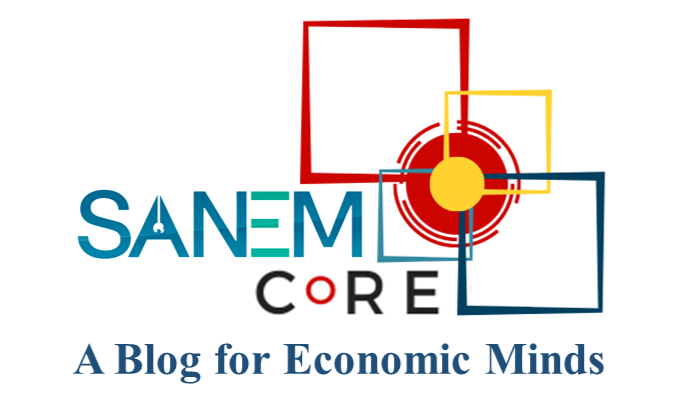On August 5, 2024, Bangladesh experienced a seismic political shift. Massive student-led protests, known as the July Revolution, culminated in the resignation and exile of Prime Minister Sheikh Hasina. The unrest was fuelled by widespread allegations of corruption, authoritarianism, and systemic human rights abuses under Hasina’s 15-year rule. In the wake of this upheaval, an interim government was established on August 8, 2024, led by Nobel laureate Dr Muhammad Yunus, with a mandate to stabilize the nation and implement reforms.
In September 2024, the interim government formed a 12-member Task Force on Re-strategizing the Economy and Mobilizing Resources for Equitable and Sustainable Development, chaired by Dr. K.A.S. Murshid, to assess the country’s economic challenges and recommend reforms. By January 2025, the Task Force released a comprehensive report outlining immediate and long-term strategies to revitalize the economy and improve governance. The roadmap was broad and ambitious, spanning governance, public service delivery, and structural change. Progress on these reform suggestions has been mixed. Some were already in motion, others were positively received and acted upon, while many remain untouched—and a few faced negative reactions.
Among the quick-win pilot reforms, BRTA stands out as a rare success story. For the first time in seven years, an advisory committee convened to tackle the transport regulator’s longstanding dysfunction. Electronic licenses and digital interfaces are gradually being introduced, while BRTA remains under pressure to reform.
In contrast, other flagship pilots—such as building a pilot public hospital or school—have seen no progress. Similarly, there’s been no movement on the proposal to restructure and digitize performance tracking at the ministry level.
The Task Force’s proposal to restructure or even split Biman Bangladesh Airlines to improve efficiency hit a hard wall. Biman’s CEO rejected the plan outright, calling it unjustified and claiming the airline is already as efficient as international carriers.
Progress on institution-building is uneven. There have been no updates on the proposed Centre of Global Excellence or the Centre for Social and Behavioural Change Communication. In economic governance, some progress came via the NBR’s advisory committee, which was active before the report. The recommendation to establish a Regulatory Reform Commission (RRC) is one the books, but there is no visible progress.
Urban mobility and governance reform have advanced modestly. Since the report’s release, a semi-automatic traffic signalling system has been piloted, and efforts were made in February to roll out a franchise-based bus service in Dhaka. While progress has since slowed, these remain notable steps.
On investment, the Task Force suggested improving the One Stop Service (OSS) and attracting foreign direct investment (FDI) in health and education. Since January, the OSS online portal has seen upgrades, and the Bangladesh Investment Summit led to several investment commitments in healthcare and higher education.
Commensurate with the taskforce’s suggestions, the government has taken various steps towards economic diplomacy and labour export strategies. High-level statements have reinforced the need to align workforce skills with global demand. Meanwhile, the Task Force’s recommendation to reorganize SEZs has gained traction. BIDA has moved to shut down ten SEZs it deemed unnecessary, while attracting foreign investment from Korea, China and other countries for the active ones.
In governance, the interim government has set up several commissions to review the constitution, judiciary, public administration, and corruption. Some of these bodies have already delivered their recommendations while the others will follow suit soon.
Efforts to address everyday extortion have started but remain modest. The DMP announced an anti-extortion drive across Dhaka, but the proposed anti-goon squad has not materialized. On government efficiency, some developments have emerged, backed by international partnerships such as the EU- and British Council-supported E-Governance project.
Data classification and management projects such as- the NID-based open data platform and re-categorization of MSMEs. Similarly, the proposals to utilize degraded land for solar energy and expand gas exploration remain unapproved, though listed in the development plan.
Financial sector reform remains politically sensitive. Bangladesh Bank has moved to reduce non-performing loans and tighten loan classification. While steps to reduce political influence in the banking sector have been announced, critics question their feasibility.
Many of the Task Force’s recommendations on investment, governance, and infrastructure were long recognized in policymaking circles but stalled due to a lack of political will and vested interests. The post–5 August context presents a unique opportunity to act on these priorities. Still, the government must remain pragmatic and take sustainable steps. The current administration should learn from the past efforts at reform—learning from their failures as well as their success—to ensure today’s efforts endure beyond the next election and a change in government.
Sheikh Tausif Ahmed, Research Associate, SANEM.
Email: sheikhtausif897@gmail.com



RECENT COMMENTS